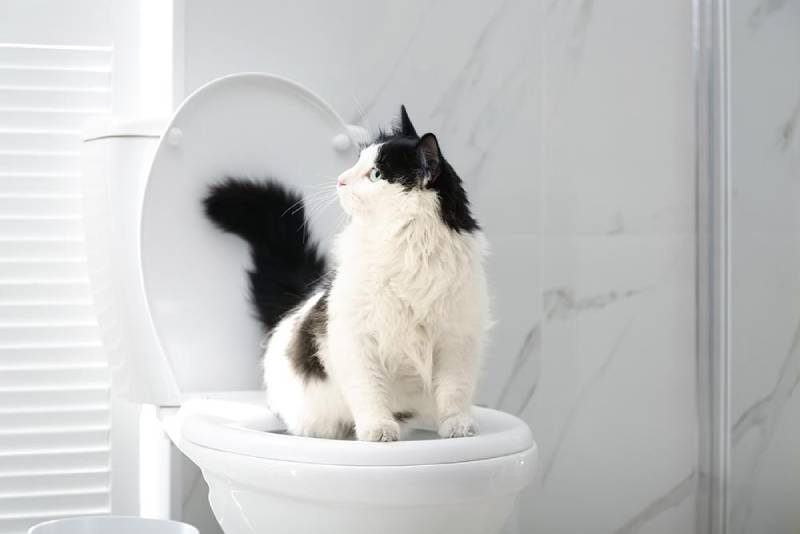Why Flushing Cat Poop Down Your Toilet Can Cause Problems - Recommendations for Proper Disposal
Why Flushing Cat Poop Down Your Toilet Can Cause Problems - Recommendations for Proper Disposal
Blog Article
The article author is making a few good annotation about Can You Flush Cat Poo or Litter Down the Toilet? overall in this article followed below.

Intro
As feline owners, it's important to be mindful of exactly how we throw away our feline good friends' waste. While it might appear practical to flush pet cat poop down the commode, this method can have damaging consequences for both the environment and human wellness.
Alternatives to Flushing
The good news is, there are much safer and much more responsible means to get rid of cat poop. Take into consideration the complying with alternatives:
1. Scoop and Dispose in Trash
One of the most common technique of taking care of feline poop is to scoop it right into a naturally degradable bag and toss it in the trash. Make sure to make use of a devoted clutter scoop and get rid of the waste without delay.
2. Use Biodegradable Litter
Select eco-friendly pet cat clutter made from materials such as corn or wheat. These litters are environmentally friendly and can be safely thrown away in the garbage.
3. Bury in the Yard
If you have a lawn, think about burying cat waste in an assigned location far from veggie gardens and water sources. Be sure to dig deep sufficient to avoid contamination of groundwater.
4. Mount a Pet Waste Disposal System
Buy a pet dog garbage disposal system especially made for pet cat waste. These systems make use of enzymes to break down the waste, lowering smell and environmental impact.
Health Risks
Along with environmental problems, purging cat waste can likewise position wellness threats to people. Cat feces might include Toxoplasma gondii, a parasite that can trigger toxoplasmosis-- a potentially extreme disease, particularly for expecting women and people with weakened immune systems.
Ecological Impact
Flushing pet cat poop introduces dangerous microorganisms and parasites into the water, positioning a substantial risk to aquatic ecological communities. These contaminants can negatively affect aquatic life and concession water quality.
Conclusion
Accountable family pet ownership prolongs past supplying food and shelter-- it also entails correct waste management. By refraining from purging feline poop down the bathroom and opting for alternative disposal methods, we can lessen our environmental footprint and protect human health and wellness.
Why Can’t I Flush Cat Poop?
It Spreads a Parasite
Cats are frequently infected with a parasite called toxoplasma gondii. The parasite causes an infection called toxoplasmosis. It is usually harmless to cats. The parasite only uses cat poop as a host for its eggs. Otherwise, the cat’s immune system usually keeps the infection at low enough levels to maintain its own health. But it does not stop the develop of eggs. These eggs are tiny and surprisingly tough. They may survive for a year before they begin to grow. But that’s the problem.
Our wastewater system is not designed to deal with toxoplasmosis eggs. Instead, most eggs will flush from your toilet into sewers and wastewater management plants. After the sewage is treated for many other harmful things in it, it is typically released into local rivers, lakes, or oceans. Here, the toxoplasmosis eggs can find new hosts, including starfish, crabs, otters, and many other wildlife. For many, this is a significant risk to their health. Toxoplasmosis can also end up infecting water sources that are important for agriculture, which means our deer, pigs, and sheep can get infected too.
Is There Risk to Humans?
There can be a risk to human life from flushing cat poop down the toilet. If you do so, the parasites from your cat’s poop can end up in shellfish, game animals, or livestock. If this meat is then served raw or undercooked, the people who eat it can get sick.
In fact, according to the CDC, 40 million people in the United States are infected with toxoplasma gondii. They get it from exposure to infected seafood, or from some kind of cat poop contamination, like drinking from a stream that is contaminated or touching anything that has come into contact with cat poop. That includes just cleaning a cat litter box.
Most people who get infected with these parasites will not develop any symptoms. However, for pregnant women or for those with compromised immune systems, the parasite can cause severe health problems.
How to Handle Cat Poop
The best way to handle cat poop is actually to clean the box more often. The eggs that the parasite sheds will not become active until one to five days after the cat poops. That means that if you clean daily, you’re much less likely to come into direct contact with infectious eggs.
That said, always dispose of cat poop in the garbage and not down the toilet. Wash your hands before and after you clean the litter box, and bring the bag of poop right outside to your garbage bins.
https://trenchlesssolutionsusa.com/why-cant-i-flush-cat-poop/

I ran across that page about Don’t flush cat feces down the toilet while doing a lookup on the web. In case you liked our post kindly remember to share it. We take joy in reading our article about Can You Flush Cat Poo or Litter Down the Toilet?.
Contact Us Today Report this page